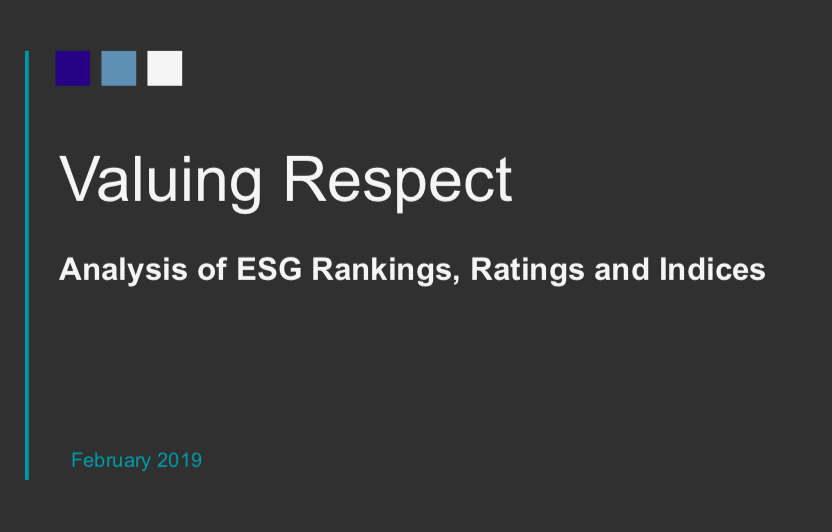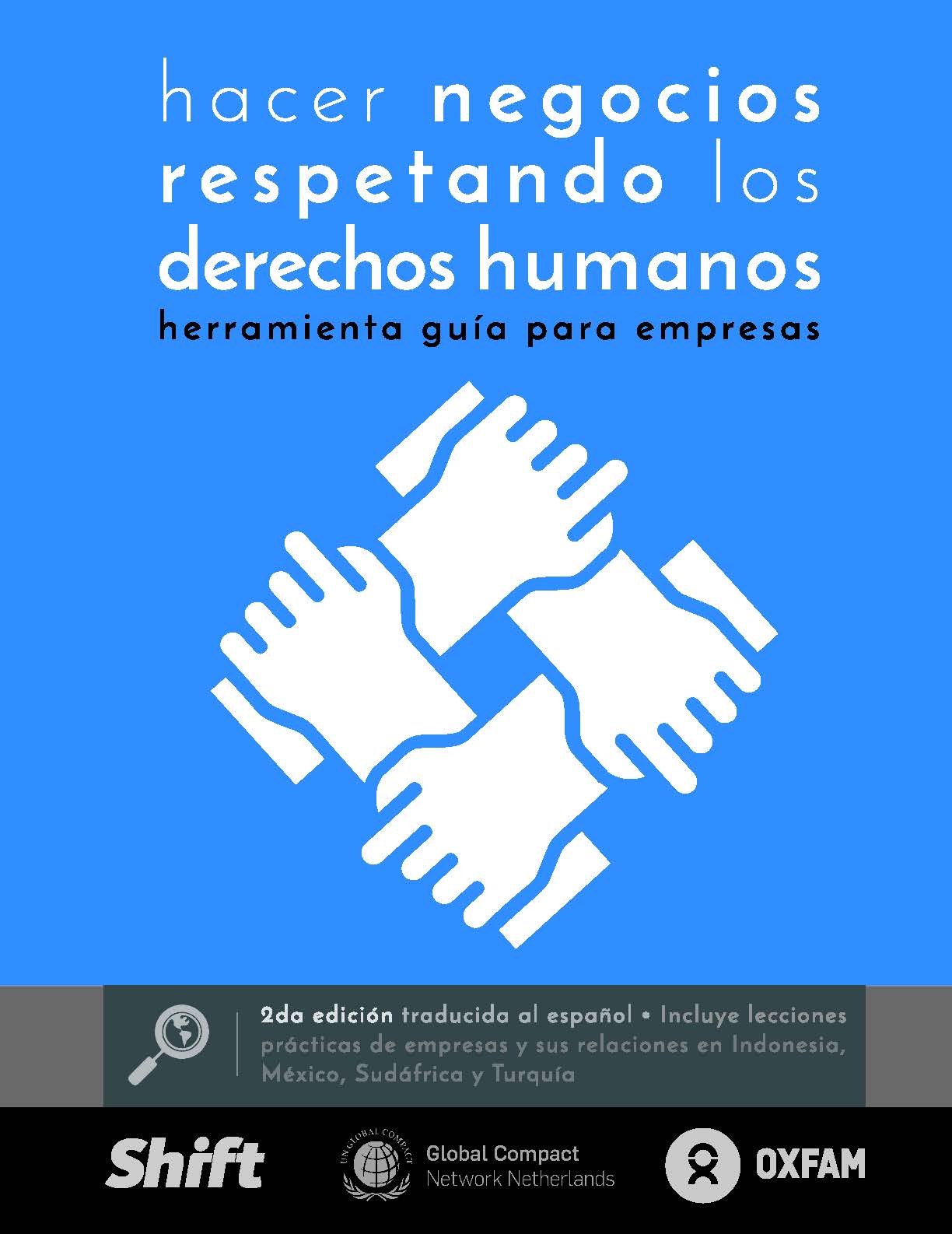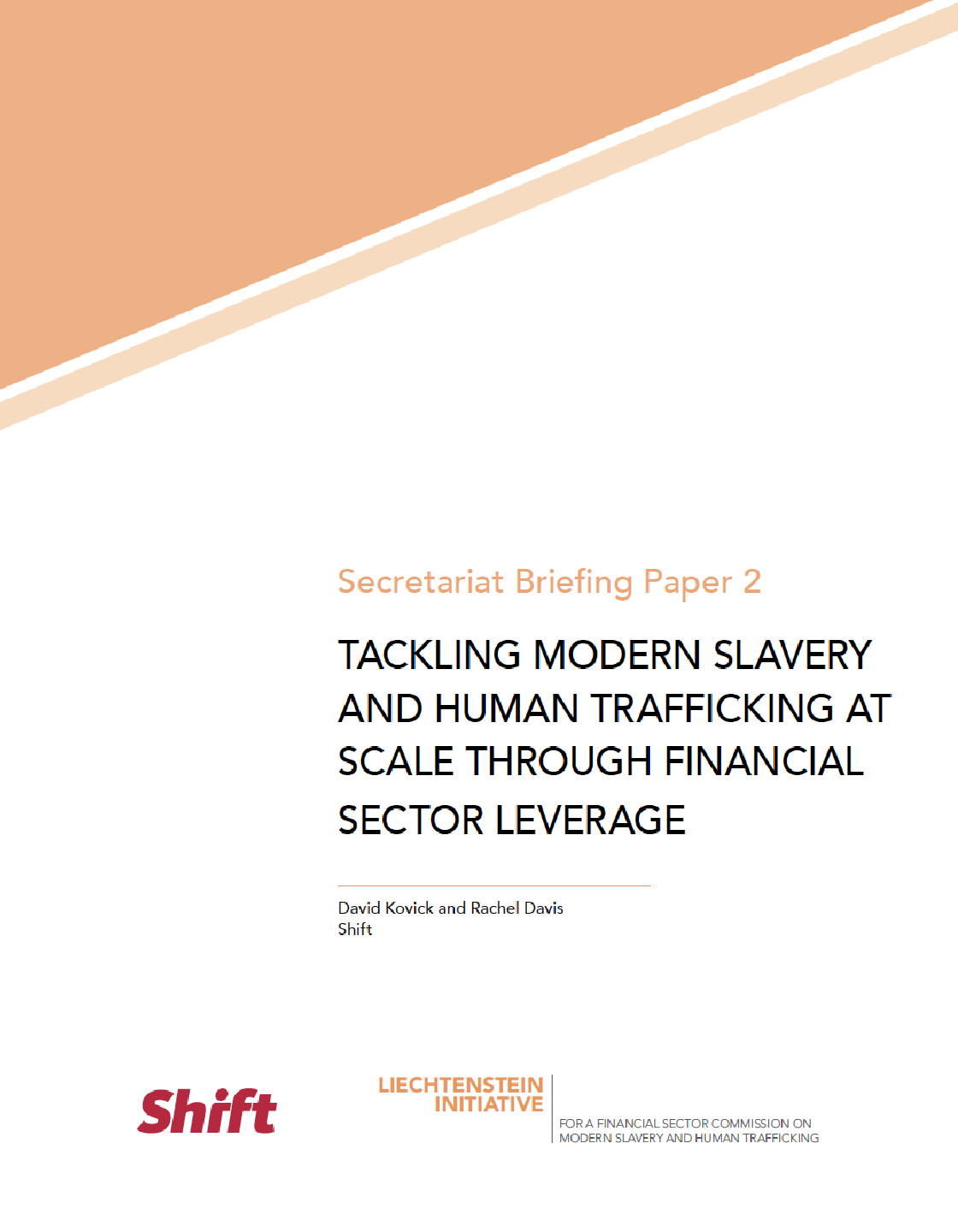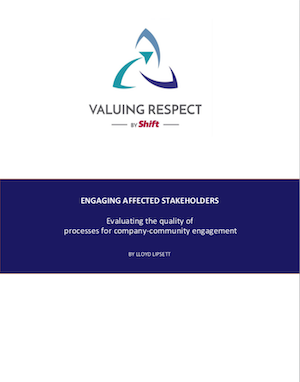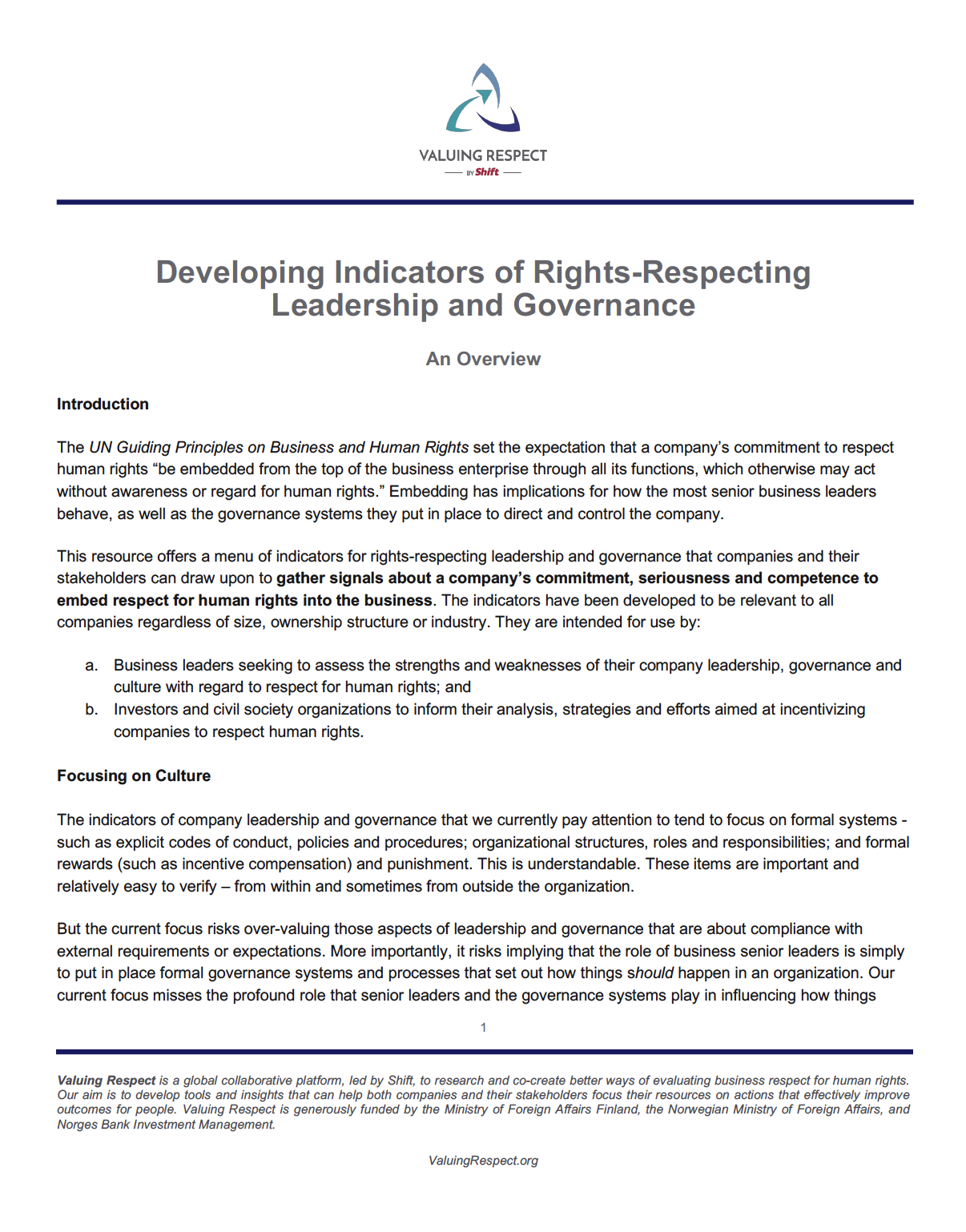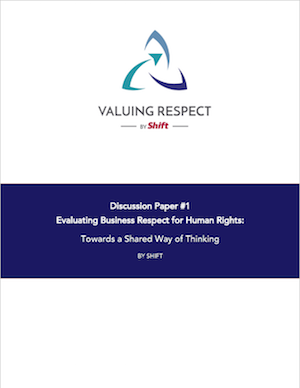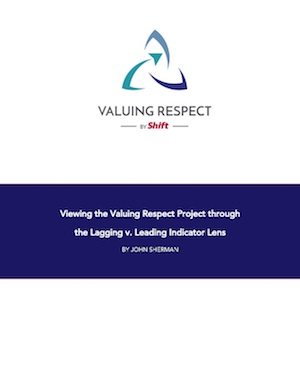Our findings on the quality of evaluation information that is available to decision-makers through ESG rankings and ratings
Archives: Resources
Doing Business with Respect for Human Rights (Spanish)
This guide is also available in English.
Hacer Negocios Respetando los Derechos Humanos es una guía completa para las empresas de todos tamaños, industrias y lugares. Está dirigida al personal de las empresas que quieren saber más sobre cómo los derechos humanos son relevantes para el negocio, qué es lo que se espera que las empresas puedan hacer acerca de ello y cómo hacerlo.
Las organizaciones de la sociedad civil, iniciativas de la industria y múltiples partes interesadas, inversionistas y otras organizaciones que trabajan directamente con las empresas también encontrarán la guía útil para entender lo que se espera de las empresas cuando se trata de respetar los derechos humanos de las personas en sus actividades y relaciones de su empresa.
La guía provee a los lectores con consejos prácticos y ejemplos reales. Dispone de puntos de orientación, dificultades a evitar y sugerencias para las pequeñas y medianas empresas. También cuenta con importantes ejemplos de políticas y prácticas de otras compañías, aborda los temas de discusión actual como los objetivos de desarrollo sostenible (ODS) y responde a preguntas como: “¿Qué ganancia obtienen las empresas al respetar los derechos humanos? ¿Qué puede hacer mi empresa acerca de los impactos que ocurren en la cadena de valor? ¿Cómo puede mi empresa realizar una participación significativa de las partes interesadas?”
Esta segunda edición incluye las perspectivas de las empresas, así como de organizaciones de la sociedad civil y se basa en lo aprendido de los seminarios realizados en Indonesia, México, Sudáfrica y Turquía.
Human Rights Reporting in the Canadian Mining Sector
In January 2018, Canada’s Ministry of Trade announced the creation of an independent ombudsman—the Canadian Ombudsperson for Responsible Enterprise (CORE)—to investigate human rights abuses connected to Canadian corporate activity abroad. Additionally, the Ministry enacted a multi-stakeholder Advisory Body to the government and CORE to advise on responsible business conduct abroad.
In light of these developments and the mining sector’s human rights track record, our team has engaged in research analyzing the human rights disclosure of a group of 18 Canadian mining companies (traditional mining companies, along with a number of streaming and royalty companies). Using Shift’s unique maturity methodology, our research revealed strengths and weaknesses of the sector’s reporting trends, which informed our key recommendations. However, the findings and recommendations of this report may have wider-reaching implications for mining companies beyond Canada as well. Undoubtedly, analysis of the Canadian mining sector’s human rights disclosure can be a significant entry point for addressing human rights disclosure, and underlying human rights performance, of the mining industry globally.
Tackling Modern Slavery through Financial Sector Leverage
This briefing paper was commissioned by the United Nations University, as part of the Liechtenstein Initiative for a Financial Sector Commission’s efforts to push beyond the boundaries of compliance towards creative financial sector action to prevent and address modern slavery and human trafficking.
Senior Advisor David Kovick and Managing Director, Rachel Davis provide observations and specific examples of what implementation of the UNGPs and related efforts by financial institutions looks like in practice today, including leading approaches, recurring challenges and immediate opportunities.
Engaging Affected Stakeholders: Evaluating the Quality of Processes for Company-Community Engagement
In this paper, Shift Advisor Lloyd Lipsett describes the best questions to ask and the best practices to use when evaluating your company’s engagement with affected stakeholders.
Reporting et Droits de l’Homme en France: Phase I (FR)
Dans le contexte de la nouvelle loi sur le devoir de vigilance, “Reporting et Droits de l’Homme en France” de Shift vise à évaluer dans quelle mesure la nouvelle législation française rapproche les entreprises des attentes en matière de reporting définies par les Principes directeurs des Nations Unies relatifs aux entreprises et aux droits de l’homme. Ce premier rapport analyse la maturité du reporting sur les droits de l’homme publié avant la sortie des plans de vigilance, en examinant les informations de 2017 et début 2018. Ce rapport établit une base de référence en fonction de laquelle nous évaluerons les améliorations.
Ce premier rapport analyse la maturité du reporting sur les droits de l’homme publié avant la sortie des plans de vigilance, en examinant les informations de 2017 et début 2018. Ce rapport établit une base de référence en fonction de laquelle nous évaluerons les améliorations.
Developing Leadership & Governance Indicators
Human Rights Reporting in France: Phase I (EN)
In the context of the new Duty of Vigilance Law, Shift’s “Human Rights Reporting in France” aims to evaluate the extent to which the new French legislation brings companies closer to the reporting expectations that were set by the UN Guiding Principles on Business and Human Rights.
In Part I, Shift analyzes the maturity of human rights reporting pre plan de vigilance, by examining information from 2017 and early 2018. This report establishes a baseline against which we will evaluate improvement.
Discussion Paper #1 Evaluating Business Respect for Human Rights: Towards a Shared Way of Thinking
In Shift’s first discussion paper for Valuing Respect, we propose two complementary ways to think about the breadth of information – and associated indicators – that might be useful in evaluating a company’s human rights performance and therefore supporting improvements in reporting and business respect for human rights.
Viewing the Valuing Respect Project through the Lagging v. Leading Indicator Lens
In this piece, Shift’s Senior Advisor John Sherman discusses the usefulness of lagging versus leading indicators in how we evaluate business respect for human rights, and what the future of these indicators might look like through the lens of Valuing Respect’s mission.

 Business Model Red Flags
Business Model Red Flags  Tool for Indicator Design
Tool for Indicator Design 